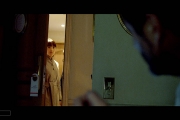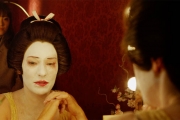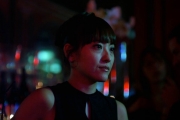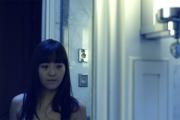![]() Presentation by and discussion with director Slony Sow and actress Eriko Takeda
Presentation by and discussion with director Slony Sow and actress Eriko Takeda
Japanese writer Kyoko Murakai comes to in Paris with the purpose of meeting “mythic Parisian women” and uncover the secret of their fulfilling lifestyles, which, she hopes, will serve as an inspiration for the main character of her next novel. This literary and sentimental saga, is also for Kyoko an attempt to emancipate herself from a still misogynistic Japanese society.
Cast & Crew
Director • Slony Sow
Screenwriter • Slony Sow
Producer • AG Studio, Sommerfugl Productions
Starring :
Eriko Takeda, Alex Brendemühl, Judith Magre, Julie Debazac, Sabine Lenoël , Agnès Château, Anne Benoît, Doby Broda, Pauline Parigot, Camille Barré, Claire Châtaigner, Sophie Simonet, Aude Thiérard-Vareecken, Chlocken, Chloé Léonil…
Choose a picture to see the filmography (source : IMDB)
![]()
Was your first intent to make a film about Paris or about womanhood?
The first idea was to make a film about women who try to reclaim their own fate in a world built by and for men. Parisian women have the particularity of making their own decisions, which is far from being the case in a country like Japan.
Was your choice of characters and performers carried out in the same manner as your main protagonist?
Once the main character was fully formulated in my mind, I went looking for women who could best represent Paris, far from the glamor and clichés with which it is generally associated.
Aesthetically, the film contrasts with the usual idealized and sanitized vision of Paris – was it a directorial choice you made?
The paper-glazed vision of this marvelous city has already been seen a thousand times in cinema. It has lost all cinematographic or narrative significance. A rougher and more dynamic image brings up some new truths and a fresh perspective. The high contrast and saturation also enable the film to retain its poetry.
Your film also explores the thematic of artistic creation. What were you trying to convey by raising this issue?
In this film, artistic creation is organic, with the immediacy of a Polaroid. It has an instantaneous and unpremeditated quality, like naturalistic short-stories.
Your Japanese heroine appears to be at a complete loss both personally and professionally – was this to better describe the cultural gap she is confronted with or the difficulty to be a woman in current society?
Kyoko’s profile and existential uneasiness are representative of how women have to do more than men without ever complaining. Independence does not necessarily come naturally, it is something hard to earn in a misogynistic world.
In the end, what did she come to Paris for and did she ever manage to find it?
Creation does not come easily without passion. Throughout her encounters with these women, whose life paths have often been chaotic, Kyoko finally does what she never could have dared in her own country. The subtlety lies within one catch-phrase: “C’est la vie”. These three simple words allow her to stop feeling guilty and to no longer sacrifice her dreams for her family life.










